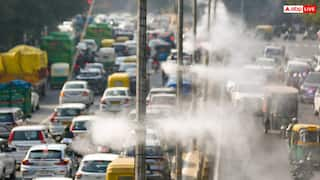COP28: First Global Stocktake's Advance Version Mentions 'Transitioning Away From Fossil Fuels', But Not 'Phase-Out'
The ‘advance version’ of the first global stocktake calls upon Parties to contribute to 'transitioning away from fossil fuels' in energy systems, but does not mention the 'phase-out' of fossil fuels.

COP28: The United Nations Framework Convention on Climate Change (UNFCCC) released the ‘advance version’ of the first global stocktake on December 13, 2023, as COP28, the 2023 UN climate summit that began in Dubai on November 30, ran into overtime due to clashes among countries over the inclusion of fossil fuel 'phase-out' in the climate deal. The ‘advance version’ of the first global stocktake calls upon Parties to contribute to 'transitioning away from fossil fuels' in energy systems, but does not mention the 'phase-out' of fossil fuels, which are responsible for climate-warming emissions.
Several countries had been urging the inclusion of 'fossil fuel phase-out' in the first global stocktake text. However, there was consistent pushback from the OPEC (Organization of the Petroleum Exporting Countries) to its Member Countries to refrain from signing a deal that targets fossil fuels rather than emissions.
The text states that it recognises the need for deep, rapid, and sustained reductions in greenhouse gas emissions in line with 1.5 degrees Celsius pathways, and calls upon Parties to make global efforts, taking into account the Paris Agreement, towards tripling renewable energy capacity globally and doubling the global average annual rate of energy efficiency improvements by 2030; accelerating efforts towards phase-down of unabated coal power; accelerating efforts globally towards net-zero emission energy systems, utilising zero- and low-carbon fuels by mid-century; and transitioning away from fossil fuels in energy systems, in a just, orderly, and equitable manner.
The text urges Parties to accelerate action in this critical decade in order to achieve net zero by 2050.
The global stocktake text also calls upon Parties to accelerate zero- and low-emission technologies such as renewables, nuclear energy, abatement and removal technologies such as carbon capture, utilisation, and storage, and low-carbon hydrogen production; substantially reduce non-carbon dioxide emissions globally, in particular methane, by 2030; accelerate the reduction of emissions from road transport throughout the development of infrastructure and rapid deployment of zero- and low-emission vehicles; and phase-out inefficient fossil fuel subsidies that do not address poverty or just transitions.
In the entire text, 'fossil fuel' is mentioned only twice.
Related Video
Southern Rising Summit 2024: How Important is Self-Awareness? Insights from Anu Aacharya | ABP LIVE
Top Headlines






































